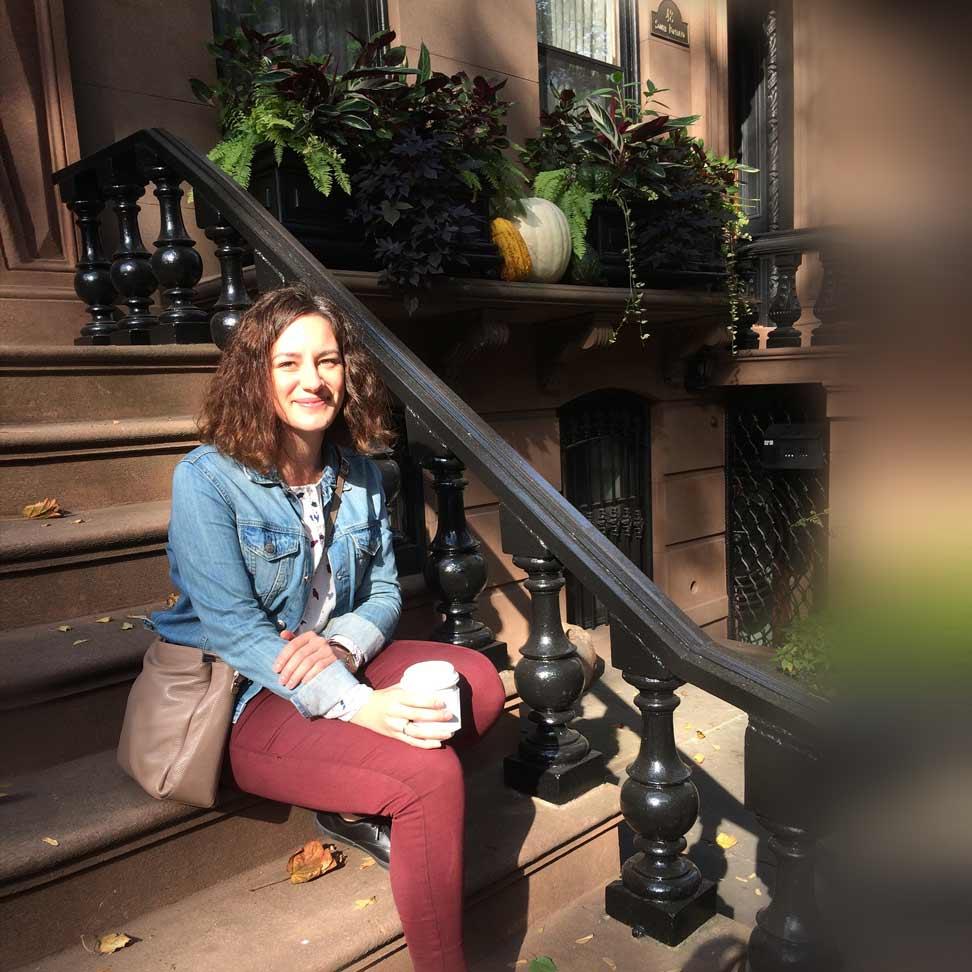Embark on a journey taking you to some of England’s most beautiful places. Our road trip will take you to sprawling green areas, quintessential villages, lively market towns and huge cities that are as rich in history as they are in contemporary culture.
So, join us as we spend 10 days exploring grand cities and picturesque countryside, starting and ending in Birmingham. We guide you to the best sights around, as well as tips on hotels and dining options.
Find a ride for this unforgettable trip to England, hit play below and you’re ready to go!
Day 1 Birmingham
Jewellery Quarter in Birmingham ©Jewellery Quarter Business Improvement District – Photographer: Amy Rose
Once dubbed “the first manufacturing town in the world,” Birmingham has – quite literally – a wealth of gems to explore. During the Industrial Revolution, the city became renowned for its Jewellery Quarter, a pocket of the city that continues to house Europe’s largest concentration of jewellery companies, and produces 40% of all jewellery made in the UK. In other words, it’s quite the destination should you be in the market for bling.
However, if dropping your pounds on precious metals isn’t quite on the agenda, get your creative fix at the Birmingham Museum and Art Gallery instead. Here you can mingle among the pre-Raphaelites, ancient Egyptians and baroque masters – and you can do it for free!
Don’t leave without eating a curry; Birmingham’s Indian food is debatably the best in the UK. Try the famous, prize-winning Lasan or its sister restaurant Raja Monkey inspired by India’s cafes and roadside eateries.
Recommended hotel: Bloc Hotel Birmingham (rates start at £37 per room, per night)
Day 2 Cambridge
Grazing cows on the Back Lawn of King’s College in Cambridge
From an important Viking trading centre to a world-renowned university city, Cambridge should be high on any tourist’s agenda. King’s College is one of the greatest examples of late gothic English architecture, as is Trinity College, which was founded by Henry VIII in 1546. A couple of hours walking around the grounds of these grand edifices and imagining all the famous faces who once ambled the same path – Alan Turning, Salman Rushdie, Isaac Newton just to name a few — is a lovely way to spend a few hours.
Now you’ve walked in the footsteps of the famous, grab a pint in their old haunt, The Eagle. This pub is where American molecular biologists James Watson and Francis Crick announced that they’d discovered the structure of DNA. Try a pint of Eagle’s DNA, a special ale created to commemorate this event.
Punting – a punt is a boat, similar to a gondola – along the River Cam is largely assumed to be the nicest way to see the city. You can either go for a chauffeured tour or, if you’re part of a bigger group, rent your own punt.
Recommended hotel: Hotel Felix Cambridge (rates start at £104 per room, per night)
Day 3 Chiltern Hills
Enjoy the view over the Chiltern Hills
Pack a picnic and head for the hills – the Chiltern Hills, designated as an ‘Area of Outstanding Natural Beauty’ due to them containing some of the country’s finest landscapes. The area covers 883 square kilometres of green land and you’re going hiking in some of the most beautiful scenery it has to offer.
Starting at Wendover, embark on a five-kilometre walk taking you to Coombe Hill, a large monument to The Second Boer War, where you can enjoy the outstanding view over the Chilterns and beyond – a wild, varied heathland scattered with wild heather and orchids. It will take around one and a half to two hours to complete.
Alternatively, explore the woods around Wendover, home to the Boddington hillfort, an important archaeological site from the Iron Age, blooming bluebell fields and one of Europe’s smallest birds – the rare firecrest.
Recommended hotel: Red Lion Wendover (rates start at £88 per room, per night)
Day 4-5 Oxford
The magnificient Blenheim Palace
Known as the ‘city of dreaming spires’, often you’ll find that you’ve spent so much time gazing up at Oxford’s medieval architecture that you’ll forget to learn about its rich history, which dates back to the 8th century. From its nascent form as a Saxon settlement and semi-destruction in the Norman Invasion to its development as an important university city, there’s so much to take in that it’s worth taking a walking tour and have a knowledgeable guide walk you through it.
For something equally thought-provoking, visit the Pitt Rivers Museum. This space houses an outstanding collection of archaeological and ethnographical artefacts, ranging from shrunken heads to feather cloaks.
On your second day in Oxford, explore Blenheim Palace, a baroque masterpiece standing 20 minutes outside the city. With countless gilded rooms to gaze at and acres upon acres of grounds to explore, you’ll end up spending the entire day here, which isn’t a bad thing considering the cafe’s afternoon tea is really delicious.
Recommended hotel: Malmaison Oxford Castle (rates start at £150 per room, per night)
Day 6-7 The Cotswolds
Sun gleaming over the famous cottages of Arlington Row in the Cotswolds
Entering the Cotswolds feels like you’ve stepped into a medieval fairytale; everything is just that picturesque.
Must-sees include Upper and Lower Slaughter, two villages considered to be among the prettiest in the area – the name derives from “slohtre” or “miry place,” rather than the bloodbath it conjures.
Stop in Bibury, a village famous for its 17th-century weaver’s cottages. Cranham hosts the Cotswolds’ iconic cheese rolling contest (yes, it’s exactly what it sounds like) every year and marks the starting point for a stunning walk over Cooper’s Hill.
And, last but not least, Cirencester, an important Roman market town that’s bursting with independent shops and fantastic little eateries.
Recommended hotels: Kings Head Hotel Cirencester (rates start at £125 per room, per night)
Day 8-9 Bath and Bristol
The Roman Baths complex is one of England’s most important historical sites
Despite the 30-minutes driving distance from each other, Bath and Bristol offer totally different experiences.
Bath is largely known for its Roman Baths, so relaxing in geothermal springs should be your number one priority here. However, at the site itself, you can only view the leisure facilities used by the Romans, not swim or bathe. Instead try Thermae Bath Spa, which boasts mineral rich water and a fantastic view over the city. Eat at Acorn Vegetarian Kitchen, a plant-based food restaurant located in a historical building from which the foundations of the British postal system were built.
In Bristol, a cultural hub straddling the River Avon, you are absolutely spoilt for choice. Clifton Village, five minutes outside the city centre, is an artisan hotspot and should be the first stop for your morning caffeine and pastry fix. Consume them on Clifton Down Park before perusing all the independent boutiques the area has to offer. Once your tummy is full, head back into town and down to the harbour: here you’ll find the M Shed, a museum that takes you through Bristol’s history, and the SS Great Britain, which was the longest passenger ship in the world between 1845 and 1854.
These days, Bristol is particularly renowned for having a bangin’ nightlife, so you’re not short of bars. Arcade game-themed bar Kongs of King Street is particularly fun, Motion is the biggest club in the city and for live music try The Old Bookshop for something more intimate.
Recommended hotel: Brooks Guesthouse Bristol (rates start at £69 per room, per night)
Day 10 The Wye Valley
Stand in the middle of Tintern Abbey’s remains
A slow drive back to Birmingham through the stunning Wye Valley – a national park that lies on the border between England and Wales – is the best way to grab a little respite after a night on the town. As you sweep through breath-taking scenery, be sure to stop off at Tintern Abbey. Built in 1131, it now stands in romantic ruin thanks to Henry VIII’s tirade against monasteries in the 16th century. You can either admire the building from the exterior pathway or pay £6.50 to walk around its grounds and adjoining museum.
Additionally, to admire some of the best examples of timber-framed buildings in England, stop by Ledbury – a quaint little market town that was built on a bishop’s estate circa 1121. The borough of Ledbury itself dates back to AD690.
Note: As you cross the River Severn there is a toll fee.


